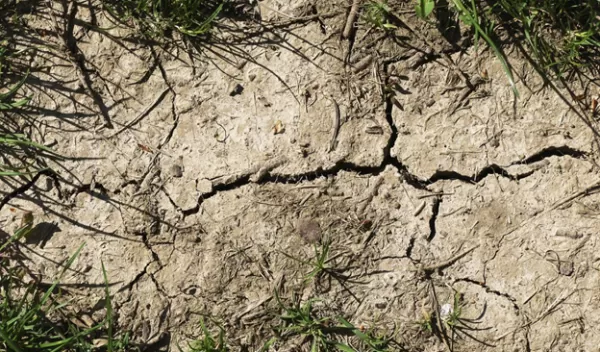
Soil microbes help plants cope with drought, but not how scientists thought
There's a complex world beneath our feet, teeming with diverse and interdependent life. Plants call out with chemical signals in times of stress, summoning microbes that can unlock bound nutrients and find water in soil pores too small for the finest roots. In return, microbes get a safe place to live or a sugary drink.
It's a classic you-scratch-my-back-I'll-scratch-yours scenario. Except when it's not. New research from the University of Illinois Urbana-Champaign challenges conventional wisdom to show free-living soil microbes are just looking out for themselves.
U.S. National Science Foundation-supported researchers found that microbes helped plants cope with drought, but not in response to plants' cries for help. Instead, the environment itself selected for drought-tolerant microbes. And while those hardy microbes were doing their thing, they just happened to make plants more drought tolerant. The findings are published in Proceedings of the Royal Society B Biological Sciences.
"Just because microbes do something adaptive or beneficial to the plant, it doesn't necessarily mean they're doing it for the plant," said Kevin Ricks, a researcher at the University of Toronto and co-author of the paper.
To learn how microbes help plants deal with drought, Ricks and colleagues established live soil communities in pots with or without plants. They watered half the pots well and imposed drought conditions in the other half, then repeated these treatments for three generations. The idea was to allow time for selection to occur — potentially for plants to signal their need for help and select for microbes that came to their aid.
"These results offer new insights into the complex relationships between plants and the soil microbiome and underscore the importance of interdisciplinary research efforts in addressing the challenges a changing climate poses for agriculture," said Diane Okamuro, a program director in NSF's Division of Integrative Organismal Systems.
In phase two of the experiment, the scientists mixed everything up. They again grew plants in soil from phase one and kept the same watering treatments, but some plants were now experiencing drought in soils that had been well-watered for generations, and vice versa. They expected soil microbes from historically dry pots would have adapted to those conditions, helping plants withstand drought more than microbes from historically wet pots. But that is what they found. Plants experiencing drought were bigger when grown with drought-adapted microbes.
Microbes adapted to drought over time even without plants selecting for them through chemical signals. Yet they still provided benefits when grown with plants generations later. It was proof these microbes were doing their own thing, only helping plants incidentally.
"Our results challenge classical thinking about what counts as a mutual benefit," said co-author Tony Yannarell of the University of Illinois.
